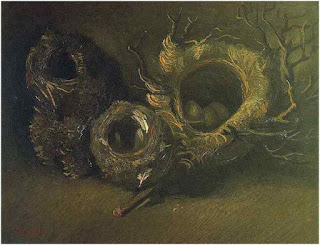What if he uses expressions that hint at the language of the Torah but can be interpreted otherwise? For example, "You are singled out for me," "You are my helpmate," "My taken one?" The Talmud resolves at least the last question positively because the Torah said, "When a man shall take a woman."
Let's return to the "You are singled out for me" question. What are the exact circumstances here? If they are talking in general about the subject of marriage, and then he gives her the money, even if he does not say anything else, she is betrothed. And if they were not talking about marriage, what is she agreeing to? The answer is that if he is silent, she is indeed betrothed. It is when he adds these words, does he maybe mean to hire her for work? And here, the Talmud does not have an answer.
Art: The Betrothal by Jacobus Buys
_-_The_Betrothal_-_1298226_-_National_Trust.jpg)



















